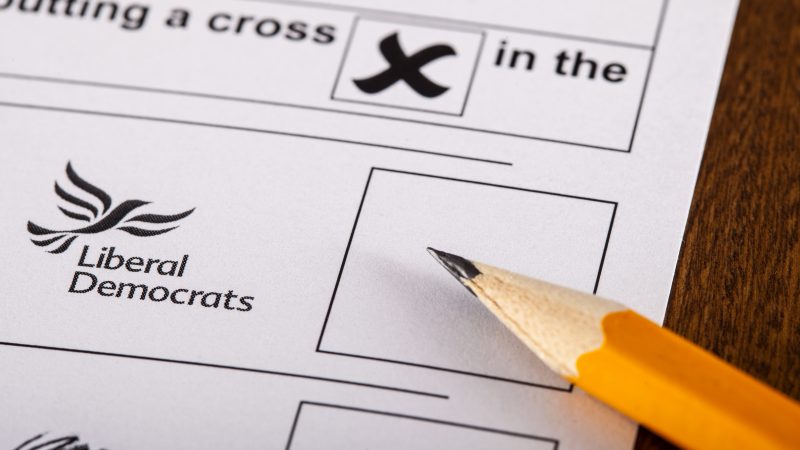
On Tuesday, Compass director Neal Lawson argued in an article for LabourList that tactical voting is already a strong feature of elections – but that it needs to be bolstered by formal pacts between Labour and what he calls “progressive parties” to defeat the Conservatives. I chair a Constituency Labour Party (CLP) in a Tory-held seat that is a Lib Dem target. Labour has consistently finished third, and whilst we came close to displacing the Lib Dems in second in 2017, we slipped back badly in 2019. Yet our CLP recently passed a motion opposing electoral pacts with other parties. Why did we do this if Neal Lawson’s argument is correct?
Firstly, as he recognises, parties already target their resources to where they are most effective. We certainly don’t see many frontbenchers campaigning in most of North Yorkshire! And that is entirely reasonable when your resources are finite. So let’s be clear that ‘pacts’ mean parties not standing candidates and actively endorsing another party and its candidate who they’ve had no say in selecting and probably know very little about, which is a risky start.
It is simply bad politics, too. It tells voters that Labour isn’t confident in its messages and policies being relevant to a vast chunk of the country that we are seeking to lead. And it puts us at the mercy of the other party; one disastrous policy announcement from our ‘partners’ and suddenly Labour is accused of backing it. Just look at the damage done to Ed Miliband by the Tory suggestion that he was keen to form a coalition with the SNP.
Pacts are also bad for our party organisation. We would be telling thousands of members that Labour simply doesn’t care about them or their communities. They joined Labour because they believe in Labour values and want to elect Labour representatives, not the lowest common denominator. They could have joined the Lib Dems (a party, let’s remember, led by a cabinet minister from the years of the Conservative-Lib Dem coalition) or the Greens if that was their ambition.
We’ll be asking them to travel often long distances to support our key seat candidates – especially in rural areas where the Lib Dems have many of their best chances. Many members in my area have said they would simply not do so in those circumstances, whilst those who strongly support tactical voting, as well as those of us who don’t but recognise the importance of targeting resources, go to help in our key seats anyway. So why alienate a significant chunk of our members? Why should new members join, pay their subs and maybe give up their time if they’re told they aren’t even allowed to vote Labour in their area?
How will we train our next generation of MPs, especially younger candidates? It’s a well-worn route for MPs to first fight an ‘unwinnable’ seat to gain experience – though occasionally they win, even from third place. But this will be closed off to them and to members who we want to campaign in future elections and who may be potential councillors or candidates.
Indeed, how do we expect to build our local government base in seats where we stand down? Even if electing an MP might be a big challenge, electing Labour councillors and giving communities a strong Labour voice to stand up for their area will become just as hard, as other parties’ leaflets proclaim ‘Labour didn’t even stand last time, so can’t win here!’.
Now, on any basis of equity and indeed effectiveness, if formal pacts are to work, parties should stand down in favour of whoever is second or in favour of the incumbent if they are a member of this so-called ‘progressive alliance’ and facing a challenge from the Tories. I’m not privy to the internal discussions of the Lib Dems, but would they really be willing to stand down in 500 seats where they aren’t first or second, essentially relegating themselves to the status of less than a national party again?
Neal Lawson states that tactical voting is already happening and has been shown to be effective in the by-elections in Wakefield and Tiverton and Honiton. I agree. It also happened in the 1997 election to Labour’s benefit. But these results happened without any formal electoral pacts. People are already insightful enough to look at the electoral maths in their area and decide for themselves if they’ll vote for the party they really want, or if their prime motivation is to kick out the Tories by voting for someone who isn’t really their preferred choice. There is no need to insult the electorate by trying to rig the system with pacts or alliances, especially given all their inherent disadvantages.




More from LabourList
Almost half of Labour members oppose plans to restrict jury trials, poll finds
‘How Labour can finally fix Britain’s 5G problem’
‘The University of the Air – celebrating 60 years of Harold Wilson and Jennie Lee’s vision’